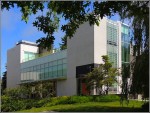As hot as things have become in Israel and the West Bank over the last many weeks with escalating violence, here in North America a chill is palpable. It comes in the form of silencing within and across communities – in private homes, on university campuses and in community institutions. It’s coming from both sides: those who call themselves “pro-Palestinian” and those who call themselves “pro-Israel.” While the Palestinian solidarity side uses boycott and silencing, the Jewish community has its own internal conversation watchdogs.
Recently, a speaker at the University of Minnesota was shouted down, his talk delayed by 30 minutes. The invited scholar was Moshe Halbertal, a philosopher at the Hebrew University of Jerusalem and a professor of law at New York University. It was a scholarly talk: the Dewey Lecture in the Philosophy of Law, sponsored by the university’s law school. Halbertal is also a noted military ethicist who helped draft a code of ethics for the Israel Defence Forces. The Minnesota Anti-War Committee took credit for the stunt; Students for Justice in Palestine endorsed it.
If you’re concerned by the extent to which civilians have born the brunt of violence and destruction in the Israeli-Palestinian context, Habertal is someone you’d want to speak with, especially in an academic context, where the point is the free exchange of ideas. But it’s hard to pose tough questions if you’re trying to silence the person.
This blocking of Halbertal’s speech is a trend that gets its fire from the academic and cultural boycott of Israel organized by the BDS (boycott, divestment and sanctions) movement, along with the more general push against what many Palestine solidarity activists call “normalization,” meaning ordinary engagement with Jews and Israelis and their ideas. Activists argue that the target is institutions, not individuals. But the effects on individuals and open speech, as they were at the University of Minnesota, are clear.
Continuing in this vein, producers of Dégradé, a film about Gaza told from the perspective of clients at a hair salon, pulled it from the Other Israel Film Festival sponsored by the JCC Manhattan because it’s a “Jewish” festival. While it seems that the producers’ decision was their own, it suggests a dangerous precedent: fortifying the silos between acceptable audiences and unacceptable ones in the world of art, ideas and culture.
Meanwhile, while the Jewish community doesn’t talk in terms of boycott and anti-normalization, it has its own troubling rules of engagement.
There are the narrow speaker guidelines for those with whom campus Jewish groups allow their members to publicly engage in dialogue. The guidelines for Hillel International, the world’s largest Jewish student organization, exclude anyone who “delegitimize[s], demonize[s] or appl[ies] a double standard to Israel, or supports the boycott, divestment and sanction movement.” While it’s natural that Israel supporters would bristle at those things, the rules effectively preclude Hillel students from inviting for debate and dialogue any Palestinian solidarity activists, almost all of whom, unfortunately, have jumped on the BDS bandwagon.
When my seven-year-long columnist post was cut from my local Jewish community paper last summer, I was told that it was to “make room for new voices.” Since then, it’s become clear that the publisher wanted only one angle on Israel. The columnist who focuses almost exclusively on the failings of Israel’s adversaries remained in place, while my replacement is steering clear of Israel altogether.
And then there are the corners of quiet shunning. I recently organized a Jewish community youth project involving rotating hosts. One of the participants pulled out, citing the fact that her husband “didn’t want me in his home.” He was appalled by my last Globe and Mail piece. When it comes to “support for Israel,” they said, “there is only one side.”
But some – young Jews in particular – are pushing back against this narrowing of discourse. First there was Open Hillel, a grassroots organization devoted to opposing the speaker guidelines mentioned above. (Disclosure: I am on the group’s academic advisory council.) And now there’s the Jewish People’s Assembly, which has launched in Washington. The group is demanding that Jewish federations – the main funding body of local Jewish communities – “not condition support for Jewish institutions and organizations on these institutions’ adherence to red lines around Israel.”
One might fantasize about casting all the silencers into a room where they can sit in silence with each other to their heart’s content. Meanwhile, the rest of us can continue to try to talk, to write and to publicly grapple with the dilemmas of the day, trying to search for bits of common ground wherever they might be.
Mira Sucharov is an associate professor of political science at Carleton University. She blogs at Haaretz and the Jewish Daily Forward. A version of this article was originally published by the Globe and Mail.

